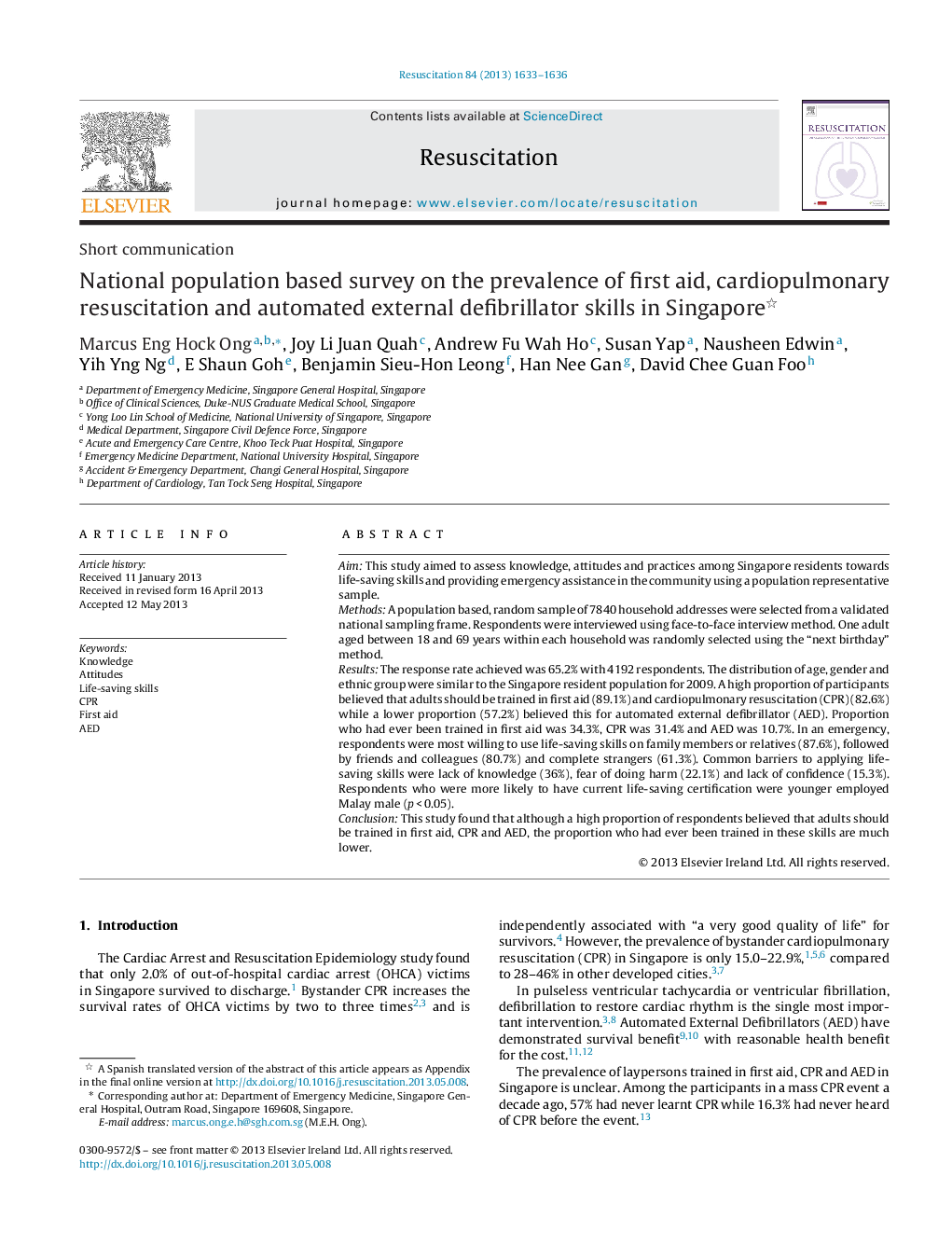| Article ID | Journal | Published Year | Pages | File Type |
|---|---|---|---|---|
| 5999001 | Resuscitation | 2013 | 4 Pages |
AimThis study aimed to assess knowledge, attitudes and practices among Singapore residents towards life-saving skills and providing emergency assistance in the community using a population representative sample.MethodsA population based, random sample of 7840 household addresses were selected from a validated national sampling frame. Respondents were interviewed using face-to-face interview method. One adult aged between 18 and 69 years within each household was randomly selected using the “next birthday” method.ResultsThe response rate achieved was 65.2% with 4192 respondents. The distribution of age, gender and ethnic group were similar to the Singapore resident population for 2009. A high proportion of participants believed that adults should be trained in first aid (89.1%) and cardiopulmonary resuscitation (CPR) (82.6%) while a lower proportion (57.2%) believed this for automated external defibrillator (AED). Proportion who had ever been trained in first aid was 34.3%, CPR was 31.4% and AED was 10.7%. In an emergency, respondents were most willing to use life-saving skills on family members or relatives (87.6%), followed by friends and colleagues (80.7%) and complete strangers (61.3%). Common barriers to applying life-saving skills were lack of knowledge (36%), fear of doing harm (22.1%) and lack of confidence (15.3%). Respondents who were more likely to have current life-saving certification were younger employed Malay male (p < 0.05).ConclusionThis study found that although a high proportion of respondents believed that adults should be trained in first aid, CPR and AED, the proportion who had ever been trained in these skills are much lower.
